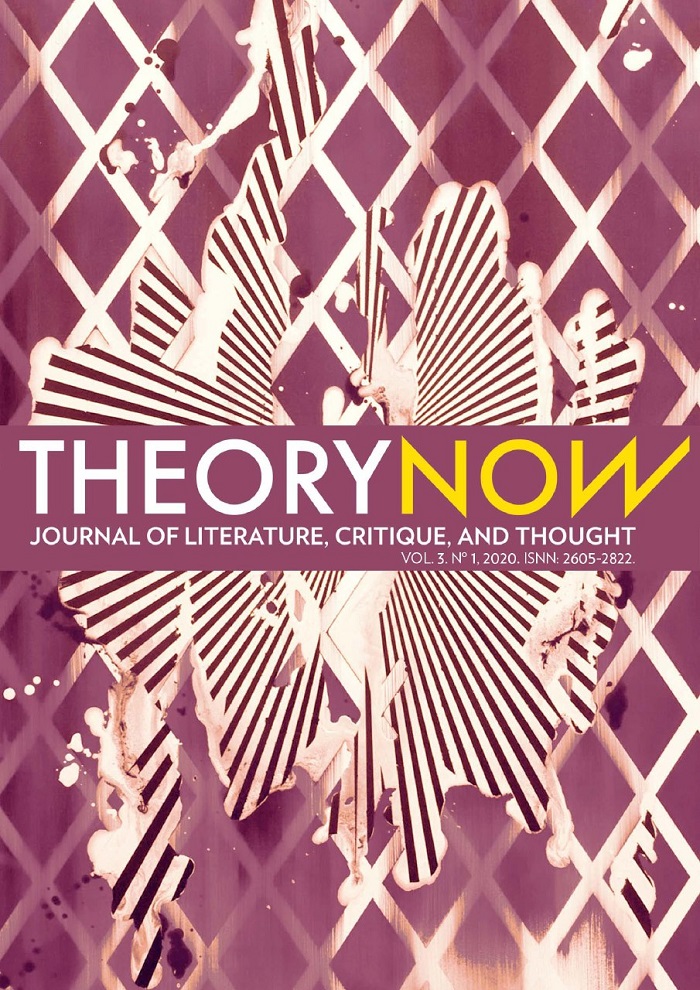Foucault and Genet. Ethic, Writing and Subjectivity
DOI:
https://doi.org/10.30827/tnj.v3i1.11267Keywords:
Foucault, Genet, ethic of self-care, writing, literatureAbstract
The main objective of this article is to investigate one of the connections between philosophy and literature, taking as its nucleus a "writing of oneself" potentially remarkable in the mood of the literary creator. Michel Foucault's works on the "ethics of self-care" or "stylistics of existence" are a starting point for recognizing in literary creation a strategic space that allows us to illustrate how another relationship with morality, ethics and politics is possible. In this sense, the works of the French writer Jean Genet provide us with a series of resources and research strategies to enter into this possibility. And this is mainly due to the fact that Genet's texts express a writing committed to a creative imagination that constantly seeks new spaces of freedom and allows it to express another way of constituting itself and interpreting reality. This is why Genet and his work will be taken in this work as a literary projection of the "ethics of self-care" in which writing stands as a battlefield from which to oppose resistance.Downloads
References
Deleuze, Gilles. Foucault. Barcelona, Editorial Paidós,1987.
Dichy, Albert; Fouché, Pascal. Jean Genet. Essai de cronologie (1910-1944). Francia, Bibliothéque de Litterature française contemporaine, 1988.
Fernández Agis, Domingo. “El yo, ese intruso. Michel Foucault y la hermenéutica de sí”. Michel Foucault y la hermenéutica de la subjetividad. Últimas indagaciones, Vincenzo Sorrentino, Daniele Lorenzini, Domingo Fernández Agis (ed.), Santa Cruz de Tenerife, Hache Hache Ediciones, 2018, pp. 55-79.
Foucault, Michel. Dits y écrits. Vol. I. Paris, Gallimard, 1994a.
_____. Dits y écrits. Vol. IV. Paris, Gallimard, 1994b.
_____. “La escritura de sí”. Michel Foucault. Estética, ética y hermenéutica. Vol. III. Michel Foucault, Barcelona, Ediciones Paidós, 1999.
_____. El gobierno de sí y los otros. Madrid, Akal, 2011.
_____. La grande ètrangère. A propos de littèrature. Paris, EHESS, 2013.
_____. La inquietud por la verdad. Escritos sobre la sexualidad y el sujeto. Buenos Aires, Siglo veintiuno Editores, 2013.
_____. El coraje de la verdad. El gobierno de sí y los otros II. Madrid, Akal, 2014.
_____. La parrêsía. Madrid, Ediciones Biblioteca Nueva, 2017.
Genet, Jean. Santa María de las Flores. Madrid. Editorial debate, 1981.
_____. Diario del ladrón. España, Ediciones RBA, 2011.
Genet, Jean, Hubert Fichte, Bertrand Poirot-Delpech. Dialogues. Vol. 14. France, Cent pages, 1990.
Lorenzini, Daniele. “Mostrar una vida. Foucault y la (bio)política de la visibilidad”. La Biopolítica en el mundo actual. Reflexiones sobre el Efecto Foucault, Domingo Fernández Agis (ed.). Barcelona, Editorial Laertes, 2012.
_____. “Decir verdadero, democracia, desobediencia civil. ¿Es posible repensar la relación ética y política?”. Revista Laguna, 33, 2013, pp. 99-112.
Riano, Peio. “Jean Genet, castrado por la censura”. Público, 05/01/2011. Disponible en:https://www.publico.es/culturas/jean-genet-castrado-censura.html Consultado en noviembre de 2018.
Downloads
Published
How to Cite
Issue
Section
License
Theory Now. Journal of Literature, Critique, and Thought is an immediate open-access publication which is available at no cost for readers and authors alike. Authors are not charged any kind of fee for the editorial processing of their articles. Reading, downloading, copying, distributing, printing, searching, linking or reusing all published articles for non-commercial uses is allowed on the condition of citing the author, the journal and the editing body. All intellectual material published in this journal is protected under a Creative Commons Attribution-NonCommercial 3.0 Spain license.
Dissemination of the articles in social (Facebook, Twitter, Linkedin, etc.) and scientific networks (ResearchGate, Academia.edu, etc.), public repositories at universities and other institutions, blogs, personal or institutional websites, Google Scholar, ORCID, ResearchID, ScopusID, etc. is strongly encouraged. In all cases, the intellectual property of the articles and any possible monetary profits derived from them belong exclusively to the authors.













